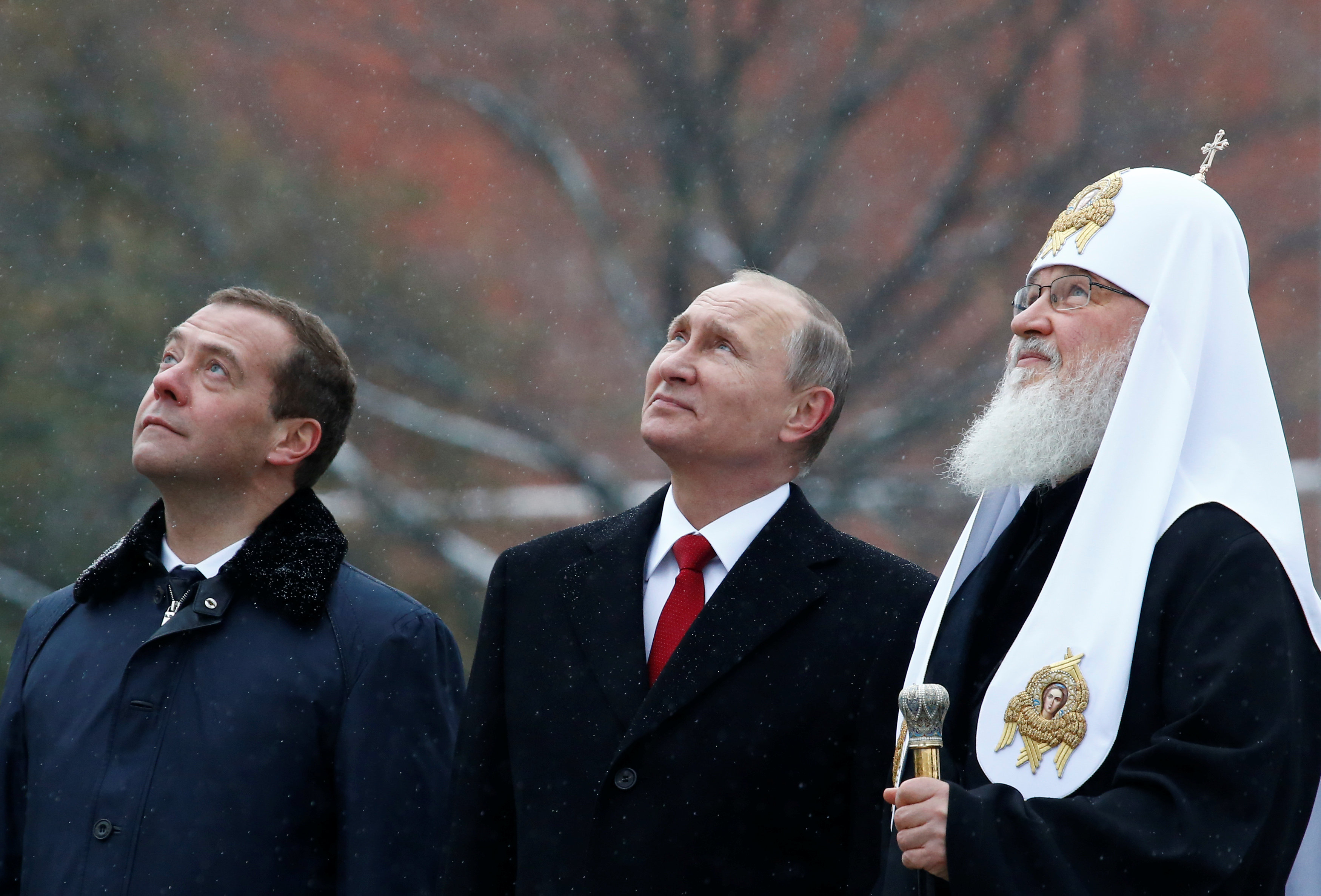
By Andrius Sytas
VILNIUS (Reuters) – A single mother takes a kindly man into her confidence. A student is plied with beer by a smiling stranger. Beguiling scenes. But the people of Lithuania are being urged in TV adverts to be wary of the kindness of strangers and call a new ‘spyline’ to check if they aren’t, perhaps, being lured into espionage by foreign agents.
By foreign agents, Lithuania means the Kremlin. Ties have always been tense with former imperial master Moscow. But since the annexation of Crimea, Russia is seen in Vilnius as a threat to Lithuania and the other Baltic states of Estonia and Latvia.
“People don’t even think that information is being squeezed out of them until it’s too late,” Darius Jauniskis, the 48-year-old head of Lithuania’s State Security Department, told Reuters.
“So to prevent this, we are going public and we are explaining all this.”
The Russian Foreign Ministry and the FSB security service did not immediately respond to written requests for comment.
Each advert, Jauniskis said, is based on a true recruitment story.
As the relationship flourishes, the kindly man dupes the lonely mother into installing an information-sucking virus at her workplace. The student wonders if the stranger’s largesse might just be motivated by the diplomatic career he plans.
NATO and EU member Lithuania is perhaps the most vocal of the Baltics in criticizing Russia and increased Russian military activity in the Nordic region. The government has even published a manual on resisting a Russian invasion.
Russia characterizes such fears as fantasy concocted by a NATO alliance that seeks to intimidate Moscow. NATO also has carried out extensive maneuvers near Russian borders.
SOVIET RULE
But Lithuania was under Soviet rule only 25 years ago. It was the first country to declare independence from Moscow in 1990, and saw off a Soviet army attempt to topple its government in 1991. Twelve civilians were killed.
Jauniskis, then 22, stood guard inside the Lithuanian parliament. Later, he led a Lithuanian commando squad fighting the Taliban in Afghanistan alongside the Americans.
He said a third of Russian embassy staff were intelligence officers working under diplomatic cover. Equipment installed on the embassy roof allowed them to listen in to phone calls.
“You will not recognize a spy,” he said. “Because a professional spy will not stand out in any way. He will not have a good car or great clothes. He will just be same as any of us.”
Moscow is recruiting Lithuanians on shopping trips to Russia, accusing them of smuggling, then offering to drop charges – and facilitate future shopping – if they agree to provide intelligence, Jauniskis’s agency said in its annual report.
Russia was also targeting Lithuanian businessmen and diplomats working in Moscow, often using blackmail.
All these things may appear standard fare for many intelligence agencies, but Lithuania sees a particular threat, living as it does in the shadow of so powerful a neighbor.
“Russia is abusing every weakness of democracy that it is able to,” said Jauniskis. “As a former soldier, I can say that defense alone will not win a war. You need to counterattack.”

An actor reading a “testimonial” about a suspiciously friendly stranger is seen in this screen grab from a TV advert by Lithuanian State Security Department taken November 30, 2016. Lithuanian State Security Department via REUTERS
But critics say the spy hotline will only breed paranoia – while perhaps overestimating Russian intelligence capabilities.
Few Russian spies have actually gone to prison. Two Lithuanians were sentenced in 2015 and 2016 and a Russian who Lithuanian prosecutors say is a Russian intelligence officer was detained in 2015. His trial is in progress.
Jauniskis said Russia was trying to undermine citizens’ trust in their own country by repeating falsehoods about it in the media and elsewhere. He proposes legislation to criminalize the “spreading of lies” to destabilize the country.
“I will not get popular by saying this, but times have changed, and we must understand that civil liberties are being curtailed in times of war,” he said.
Jauniskis is not impressed by critics’ accusation that all this constituted a step back to Soviet-style “thought police”.
“I don’t think Russia is even concealing that their main target is not Baltics, but destroying the European Union and NATO,” Jauniskis said.
(Additional reporting by Maria Tsvetkova in Moscow; editing by Alistair Scrutton; editing by Ralph Boulton)








